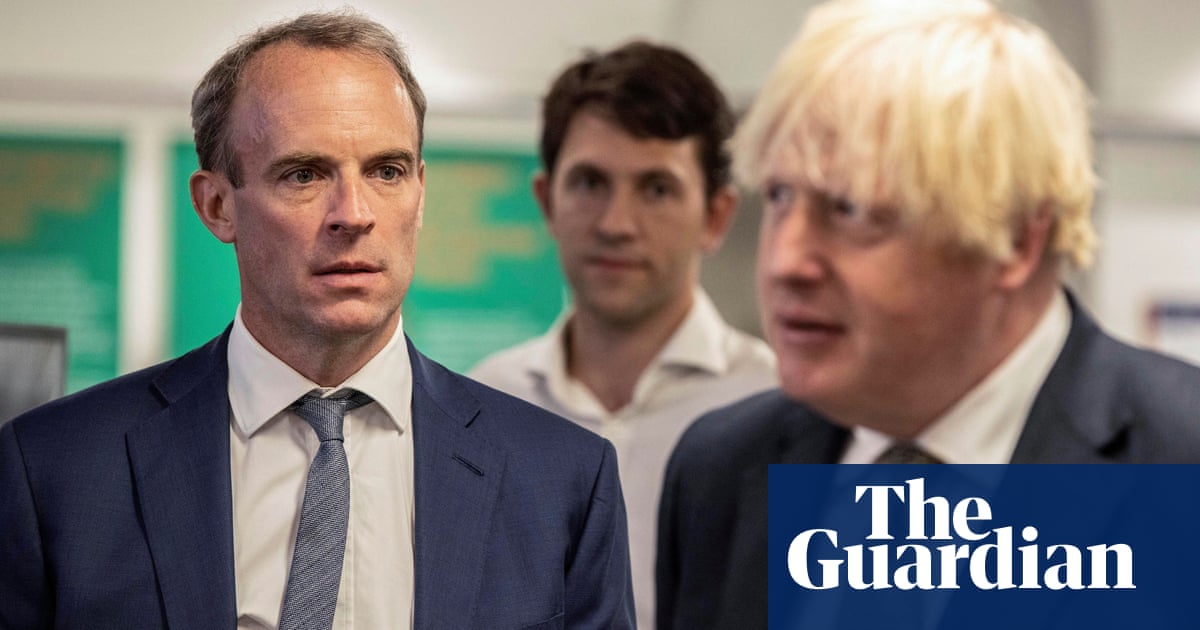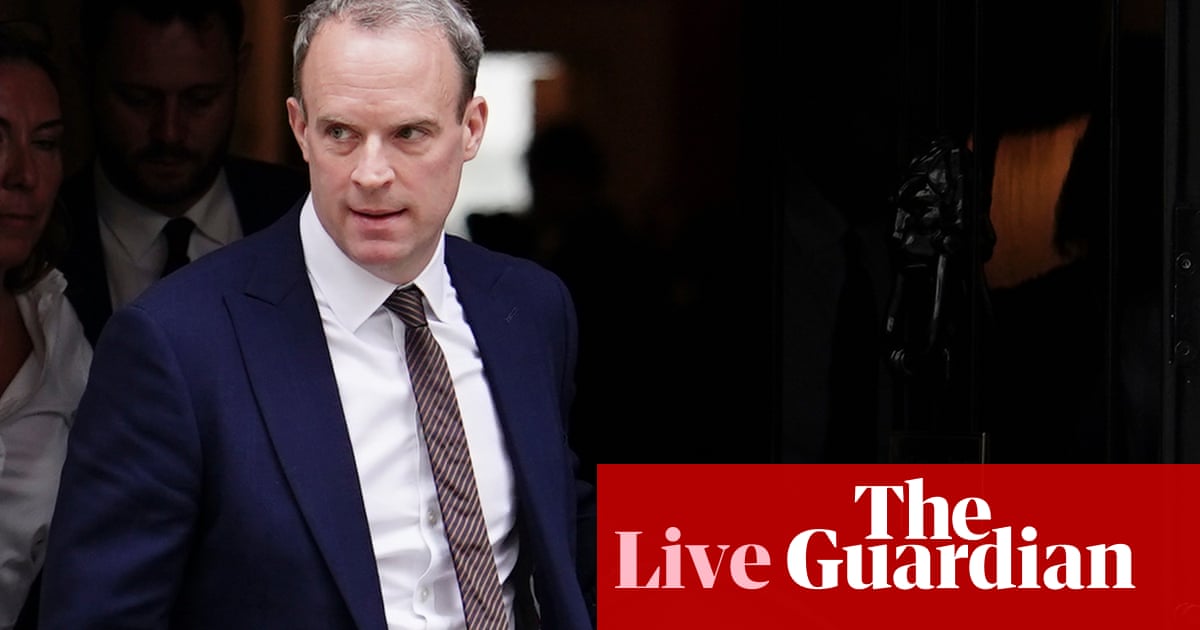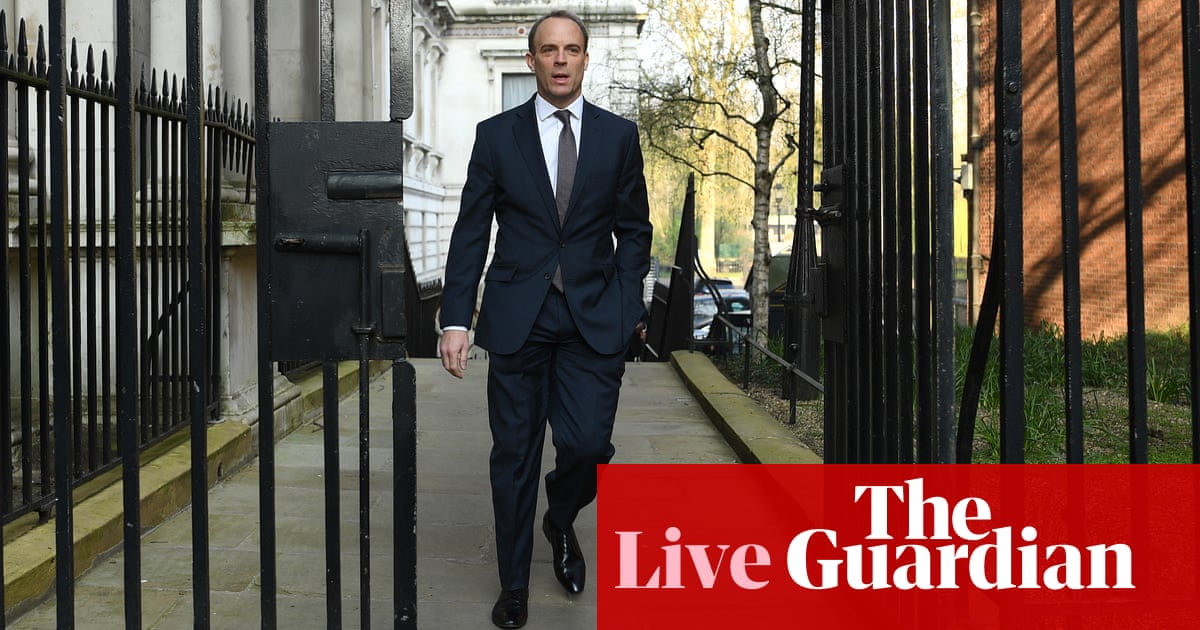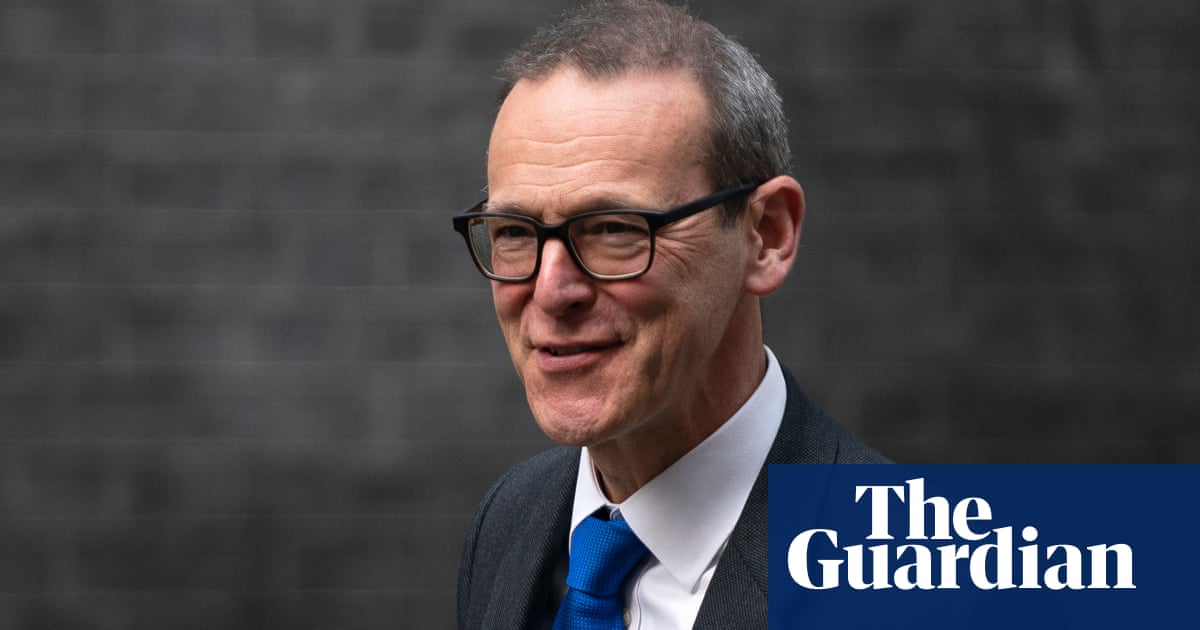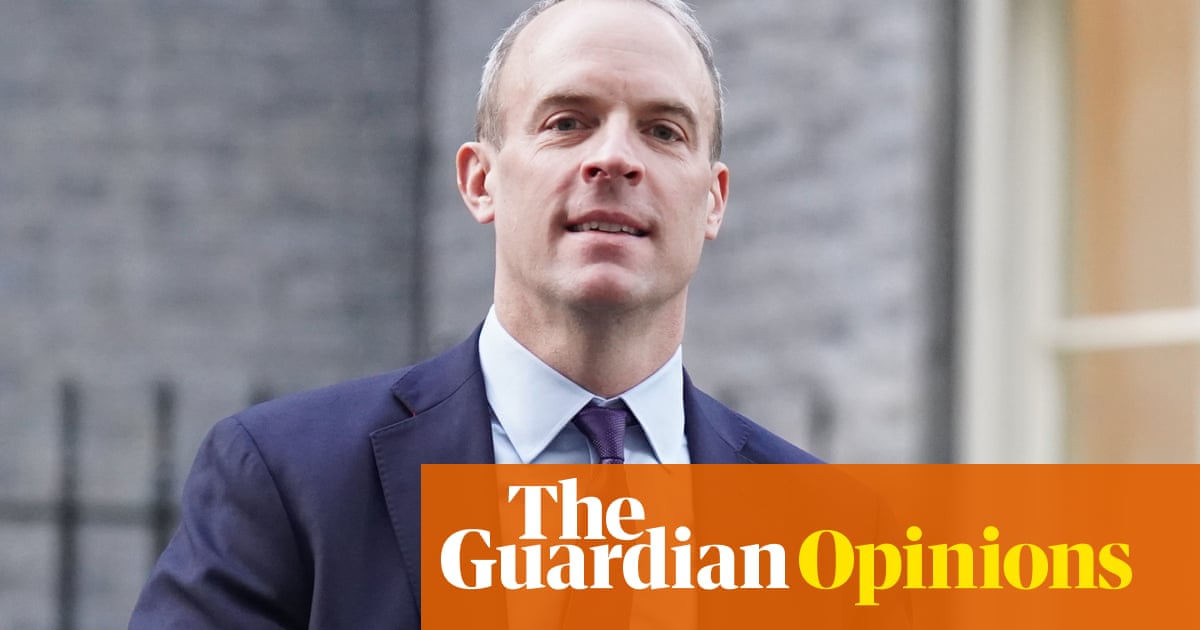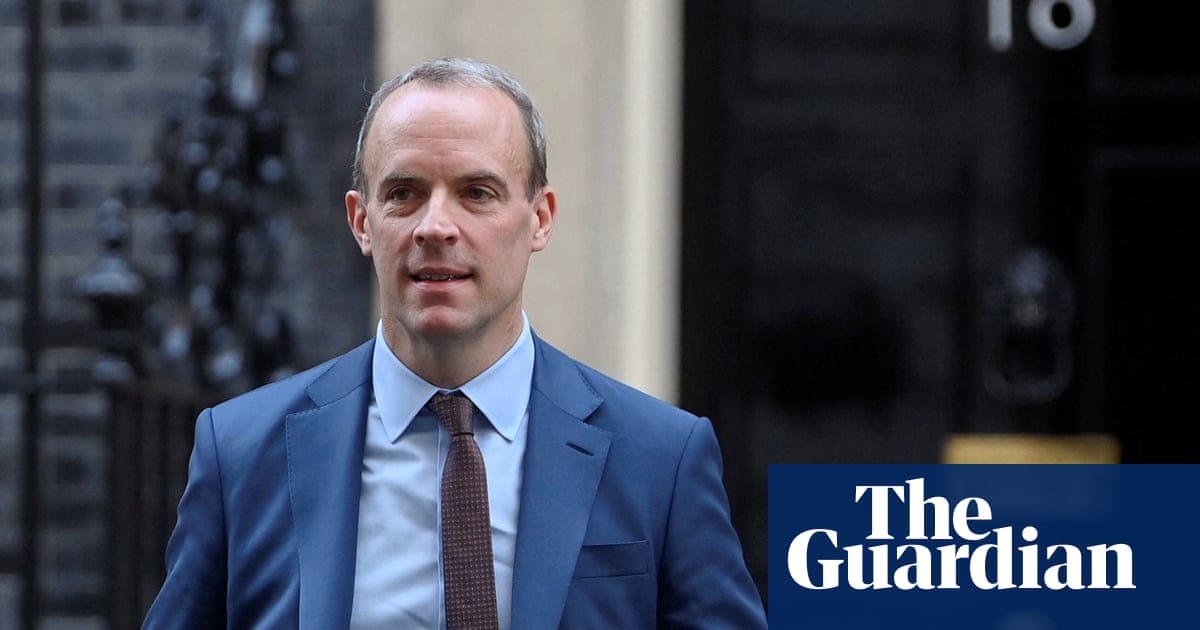
Dominic Raab has resigned as the UK’s deputy prime minister and as justice secretary after an official report into bullying allegations found he had acted in an “intimidating” manner towards civil servants.
The investigation by Adam Tolley KC, a leading employment barrister, said Raab had on a number of occasions “gone further” than appropriate in delivering critical feedback and been insulting about work done by Ministry of Justice officials.
Tolley believed that while Raab did not intend to upset or humiliate officials, they found him “unreasonably difficult to deal with”, as he was sometimes “abrasive” – and while he had regulated his level of abrasiveness, “he should have altered his approach earlier”.
He also found that Raab, who attended four interviews over the five-month inquiry into allegations about bullying behaviour in the Ministry of Justice and other Whitehall departments, had acted with “unreasonably and persistently aggressive conduct” while foreign secretary.
Raab released an angry resignation letter on Friday morning in which he said the conclusions of the report into his conduct set a “dangerous precedent” by setting the threshold for bullying “so low” – but that he wanted to “keep his word” to quit if it found against him.
Raab had faced multiple formal complaints over his dealings with civil servants, including claims, first revealed by the Guardian, that he bullied and belittled staff, driving some to tears or causing them to vomit before meetings.
The departure of such a close political ally is a major blow to Rishi Sunak who is facing questions over his judgment after civil servants flagged that there had been “issues” with Raab in his previous departments before he decided to bring him back into government.
In his letter to Raab, Sunak said that his deputy prime minister had “rightly” undertaken to resign if the report made any finding of bullying whatsoever. “You have kept your word,” he added.
”But it is clear that there have been shortcomings in the historic process that have negatively affected everyone involved. We should learn from this how to better handle such matters in future.”
He went on to praise Raab’s record across several government departments and his support during the Tory leadership campaign. “Your resignation should not make us forget your record of delivery in both this government and previous administrations. These achievements should make you extremely proud.”
Sunak had faced criticism for allowing Raab – the second member of his cabinet forced to resign amid bullying allegations after Gavin Williamson last year – to stay in post while the investigation by Adam Tolley KC, a leading employment barrister, concluded.
One government source said Downing Street had been planning to publish the report, and Sunak’s decision on Raab’s future, on Friday afternoon, suggesting that Raab had “jumped before he was pushed” by the prime minister.
However, Raab said that details of the report, which was passed to Sunak on Thursday morning, “dismissed all but two of the claims levelled against me” and that those findings were “flawed and set a dangerous precedent for the conduct of good government”.
He defended ministers being able to “give direct critical feedback on briefings and submissions … in order to set the standards and drive the reform the public expect of us”.
But he stressed he was “genuinely sorry for any unintended stress or offence that any officials felt, as a result of the pace, standards and challenge that I brought to the Ministry of Justice”.
Raab claimed that Tolley’s report found he had “not once, in four and a half years, sworn or shouted at anyone, let alone thrown anything or otherwise physically intimidated anyone, nor intentionally sought to belittle anyone”.
He appeared to criticise the case against him, saying that “in setting the threshold for bullying so low, this inquiry has set a dangerous precedent”.
Raab added: “It will encourage spurious complaints against ministers, and have a chilling effect on those driving change on behalf of your government –– and ultimately the British people.”
Raab said he had raised with Sunak “a number of improprieties” about the review into his conduct, including “the systemic leaking of skewed and fabricated claims to the media” in breach of the inquiry rules and civil service code.
In an indignant opinion piece in the Telegraph, Raab later described the inquiry as a “Kafkaesque saga” and suggested the outcome would encourage some officials to target ministers who “negotiate robustly”, “pursue bold reforms” and “persevere in holding civil servants to account”.
“If that is now the threshold for bullying in government, it is the people of this country who will pay the price,” he added.
Some Tory MPs are privately concerned that Sunak’s handling of the row, in the wake of the Nadhim Zahawi tax affair, would further undermine his pledge to instil “integrity, professionalism and accountability at every level” of his government as he tries to move on from the Boris Johnson era.
Sunak suggested in February that if Tolley concluded that his deputy had fallen short of the standards expected of somebody in his position, he would be sacked. However, the lawyer’s remit was solely to “establish the facts” of Raab’s conduct and it was left to the prime minister to decide whether he should face sanction.
Sunak said at the time: “When I’m presented with conclusive independent findings that someone in my government has not acted with the integrity or standards that I would expect of them, I won’t hesitate to take swift and decisive action.” Raab had also said he would respect the findings of the inquiry.
Dozens of Raab’s own staff were interviewed by Tolley as complainants or witnesses, or submitted written evidence to the inquiry, which was set up by Sunak last November. Tolley also interviewed all three senior civil servants who worked with Raab while he was holding cabinet positions.




